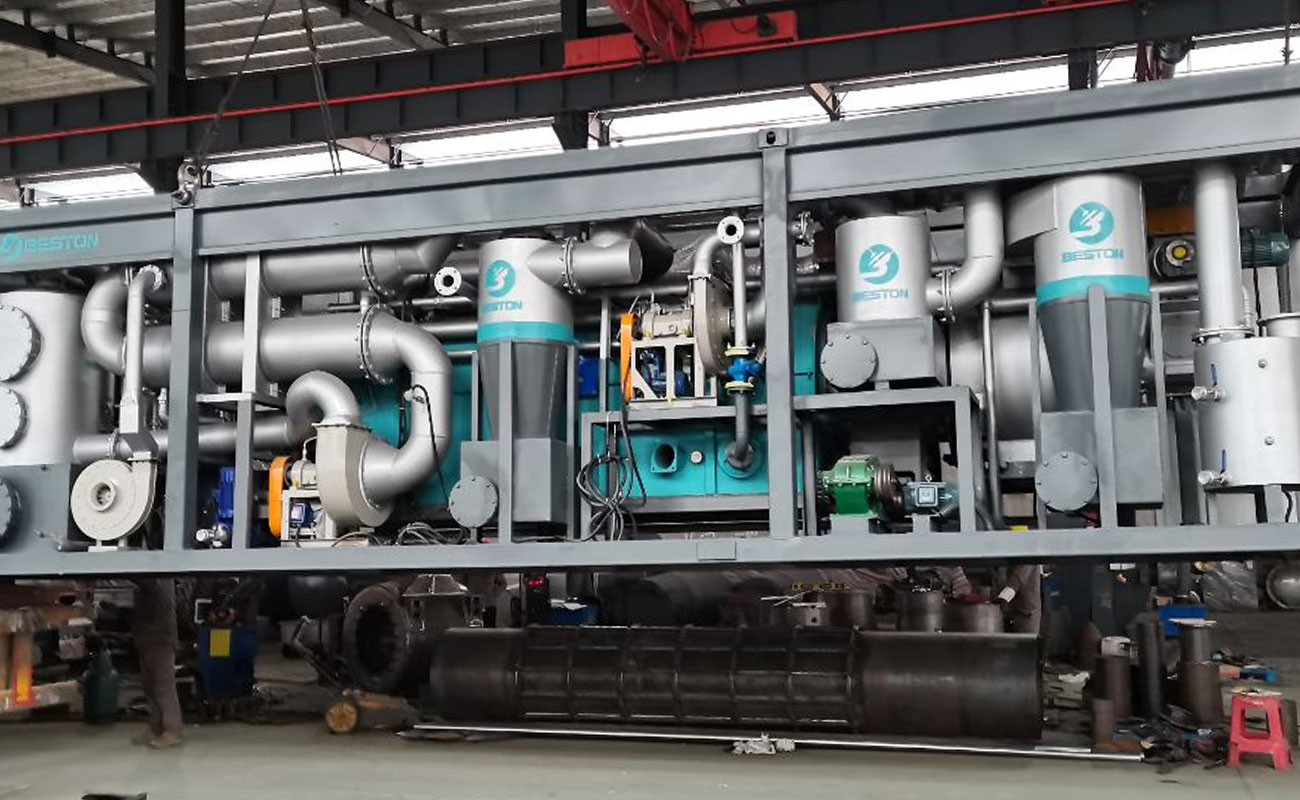Introduction
Sustainable agricultural development is paramount in addressing the world’s growing food demand while minimizing environmental impact. In this pursuit, coconut shell charcoal making machines have emerged as transformative tools. This article explores how these machines are revolutionizing sustainable agricultural development by harnessing the potential of coconut shells.
Coconut Shell Charcoal Making Process
Pyrolysis: The Heart of Charcoal Production
At the core of coconut shell charcoal making machine lies the pyrolysis process, a thermal decomposition technique that converts coconut shells into valuable charcoal. This process involves heating coconut shells in the absence of oxygen, resulting in the breakdown of complex organic compounds.
Utilizing Coconut Shells as Feedstock
Coconut shells, a byproduct of the coconut industry, are an abundant and underutilized resource. Charcoal making machines capitalize on this waste material, turning it into a valuable agricultural asset.
Advanced Reactor Designs
Modern charcoal making machines feature advanced reactor designs that enhance pyrolysis efficiency. These designs optimize heat distribution and maximize the yield of high-quality coconut shell charcoal.

Agricultural Benefits
Soil Enrichment and Carbon Sequestration
Coconut shell charcoal, in the form of biochar, is a powerful soil conditioner. It enhances soil structure, water retention, and nutrient availability while sequestering carbon, contributing to climate change mitigation.
Enhanced Crop Growth and Yield
The application of coconut shell biochar improves crop growth and yield. It enhances root development, nutrient absorption, and microbial activity in the soil, leading to healthier and more productive crops.
Sustainable Pest Management
Biochar from coconut shells can act as a natural pesticide. Its porous structure absorbs and releases nutrients and substances that deter pests, reducing the need for chemical pesticides.
Economic Advantages
Revenue from Charcoal and Biochar
Investing in biomass pyrolysis plant allows agricultural communities to generate revenue from the sale of charcoal and biochar, diversifying income sources.
Cost Savings in Agriculture
The use of coconut shell biochar reduces the need for synthetic fertilizers and pesticides, resulting in cost savings for farmers. It also extends the life of the soil, reducing the need for land expansion.
Rural Job Creation
The adoption of charcoal making machines creates job opportunities in rural areas, bolstering local economies and improving livelihoods.
Environmental Impact
Reduction in Coconut Shell Waste
By utilizing coconut shells that would otherwise go to waste, charcoal making machines contribute to waste reduction and a more sustainable coconut industry.
Lower Carbon Emissions
The production of coconut shell charcoal emits fewer greenhouse gases compared to traditional waste disposal methods, reducing the carbon footprint of the agricultural sector.
Biodiversity and Ecosystem Benefits
The use of biochar enhances soil health, fostering diverse ecosystems and supporting biodiversity.
Future Prospects and Conclusion
Expanding Coconut Shell Charcoal Applications
The applications of coconut shell charcoal and biochar are continually expanding. From energy production to water purification, these products hold promise for various sectors beyond agriculture.
A Sustainable Path to Agricultural Transformation
Coconut shell charcoal making machines offer a sustainable path to agricultural transformation. They bridge the gap between waste management and agricultural productivity, paving the way for more environmentally friendly and economically viable farming practices. As the world seeks sustainable solutions to food security and environmental challenges, the role of these machines in sustainable agricultural development becomes increasingly vital.

Comments
No comments yet. Be the first to react!